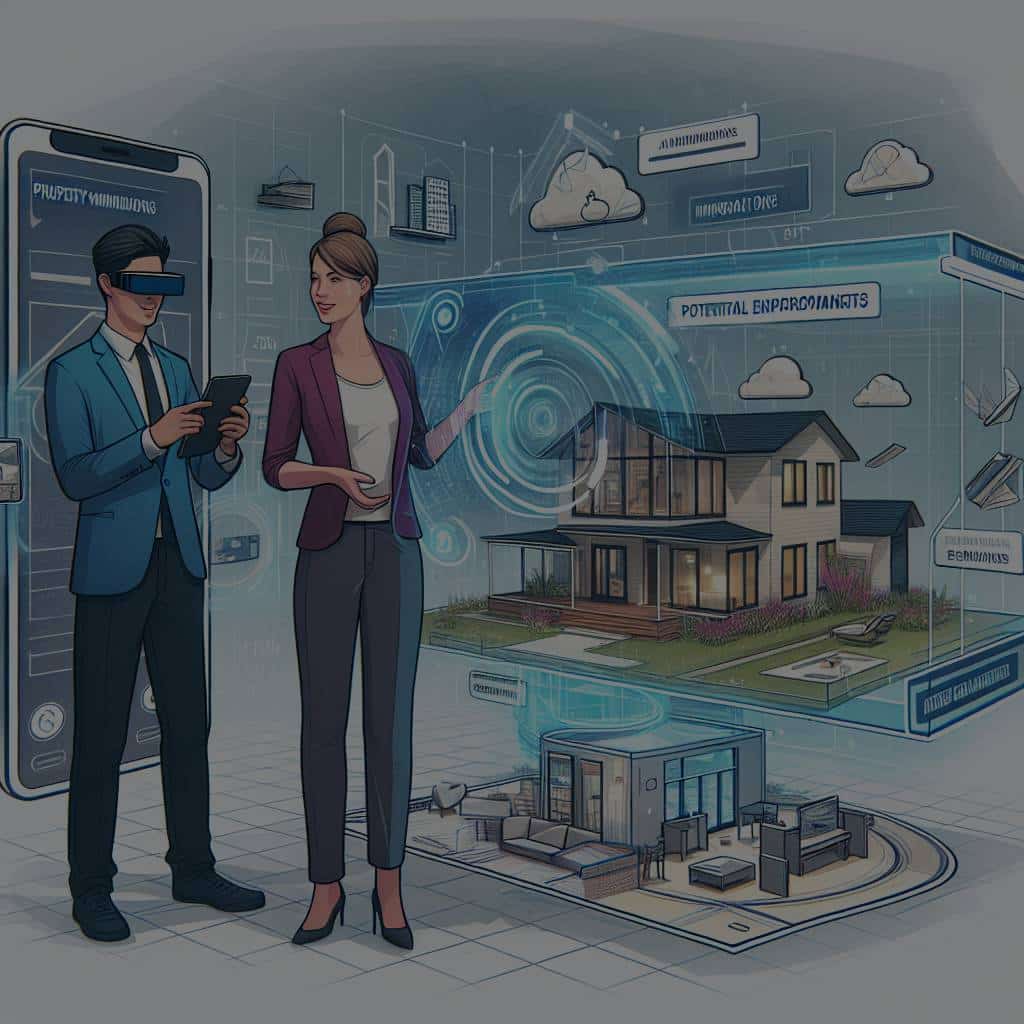In the world where technology is no longer a luxury but a necessity, the real estate industry is not one to be left behind. Especially when it comes to selling properties, the industry has seen a major shift in how potential buyers experience properties, thanks to the wonders of Virtual and Augmented Reality (AR).
The immersive experience provided by these technologies is making real estate marketing a much more intuitive experience. From the comfort of their homes, prospective buyers can now take a tour of properties, visualize their potential future homes, and make informed decisions.
Also read : How to Leverage Tax Incentives for Historic Property Renovation in the UK?
This article will walk you through how you can incorporate Augmented Reality in your real estate business to enhance property viewings and boost sales.
Utilizing Augmented Reality for Property View
Imagine being able to show a property to a potential buyer who is miles away, or even in a different country. Sounds impossible, right? But it’s not. This is the reality that AR technology has made possible in the real estate industry.
In the same genre : What Are the Financial Benefits of Retrofitting Old Buildings with Green Technologies?
Augmented reality allows potential buyers to view properties in a more immersive and interactive way. Instead of just looking at static images on a website or brochure, AR enables them to explore the property virtually. They can wander around the rooms, visualize the layout, and even see how their own furniture would look in the space.
It doesn’t stop at existing properties. If you’re in the development phase, augmented reality can help your potential buyers visualize the final product. They can walk through the project while it’s still on the drawing board, see the planned amenities, and get a feel for the neighborhood.
This technology not only gives your clients a better property view experience, but also helps you save time and resources by reducing the number of physical showings.
Enhancing Property Sales Through Augmented Reality
Augmented reality goes beyond just making the property view experience more immersive. It also has a direct impact on real estate sales.
When potential buyers can virtually ‘walk’ through a property, they can get a better understanding of its features, layout, and the sense of space. This allows them to make quicker decisions, thereby shortening the sales cycle.
AR also opens up the property market to a wider audience. It’s no longer necessary for buyers to physically visit a property before making a purchase decision. This is especially beneficial if your target market includes overseas investors, who can now explore and buy properties without leaving their country.
Furthermore, augmented reality can be a powerful marketing tool. By offering virtual tours, you can attract more potential buyers and stand out from the competition. Buyers are more likely to remember and be impressed by a property they’ve explored in an augmented reality app, compared to one they’ve simply seen photos of.
Integrate Augmented Reality into Your Real Estate Business
As with any technology, the key to making the most of augmented reality in real estate is to integrate it seamlessly into your business processes.
Start by identifying which aspects of your business could benefit from AR. Is it the property viewings? Or the post-sale services? Once you’ve identified these areas, you can start looking for AR solutions that meet your needs.
You can either develop your own augmented reality app or use existing platforms. There are several real estate-focused AR apps available in the market that you can leverage.
When implementing an AR solution, it’s crucial to ensure that it’s user-friendly. Remember, your clients might not be tech-savvy, so the app needs to be easy to navigate and understand.
Conclusion
When used correctly, augmented reality can revolutionize the way you do business in the real estate industry. It can enhance the property view experience for your clients, make your marketing efforts more impactful, and ultimately boost your sales.
While integrating AR into your processes might require an initial investment, the potential returns in terms of time and resource savings, increased sales, and improved client satisfaction make it more than worth it. So don’t hesitate to embrace this technology and take your real estate business to new heights.
In this era of digital transformation, staying ahead of the curve and embracing innovative technologies like augmented reality can make all the difference in the success of your real estate business. Make sure you’re not left behind.
The Role of App Development in Real Estate Augmented Reality
App development plays a significant role in the deployment of augmented reality in the real estate industry. When it comes to creating an immersive experience for potential buyers, a well-designed app can make all the difference.
The first step in developing an augmented reality real estate app is to establish the objectives. What are you aiming to achieve with the app? Do you want to enhance property views, or do you want to facilitate decision making for potential buyers? Once you have established the objectives, you can then design the app’s features accordingly.
For instance, if you want to provide a comprehensive view of properties, you can include features such as 360-degree virtual tours, real-time 3D visualizations, and virtual staging capabilities in your app. These features allow potential buyers to explore properties in detail, giving them a sense of being physically present in the location.
If your objective is to aid in decision making, your app could include features that provide detailed information about the property. For instance, interactive floor plans, property specifications, and even neighborhood information could be part of the app.
Developing an augmented reality real estate app also involves considering the user interface and experience. The app should be user-friendly, intuitive, and easy to navigate, ensuring that even non-tech-savvy individuals can use it with ease.
Keep in mind that you can either develop your own app or leverage existing real estate augmented reality platforms. There are numerous real estate apps available in the market that have incorporated AR technology effectively.
Impact of Augmented Reality on Commercial Real Estate Market
The impact of augmented reality on the commercial real estate market has been substantial. By offering a more immersive and interactive experience, augmented reality has transformed the way commercial properties are viewed and sold.
Potential buyers can take virtual tours of commercial properties, exploring every nook and cranny in detail. AR technology enables them to visualize the layout and space, understand the property’s features, and even see how their own office setup might look in the space.
Moreover, augmented reality has made the commercial real estate market more accessible. Investors don’t need to physically visit the properties before making a purchase decision. They can explore and understand the property through augmented reality, irrespective of their geographical location. This has significantly broadened the commercial real estate market, bringing in potential buyers from across the globe.
In addition, augmented reality has also changed the way commercial real estate is marketed. Virtual tours and AR experiences make for intriguing marketing content, attracting more potential buyers and setting the property apart in a competitive market.
Conclusion
The advent of augmented reality has indeed been a game-changer in the real estate industry. This technology has not only transformed property viewing experiences but has also significantly impacted the decision-making process for potential buyers.
While the initial investment in app development and AR integration might seem daunting, the potential returns make it worthwhile. By offering more engaging, vivid, and immersive property viewing experiences, you can attract a wider audience, shorten the sales cycle, and ultimately boost your sales.
In the era of digital transformation where every industry is leveraging technology to stay ahead, integrating augmented reality into your real estate business is no longer an option, but a necessity. Embrace this innovative technology and watch your real estate business reach unprecedented heights.
Remember, in the fast-paced world of real estate, those who adapt to emerging technologies like augmented reality are the ones who will truly excel.






